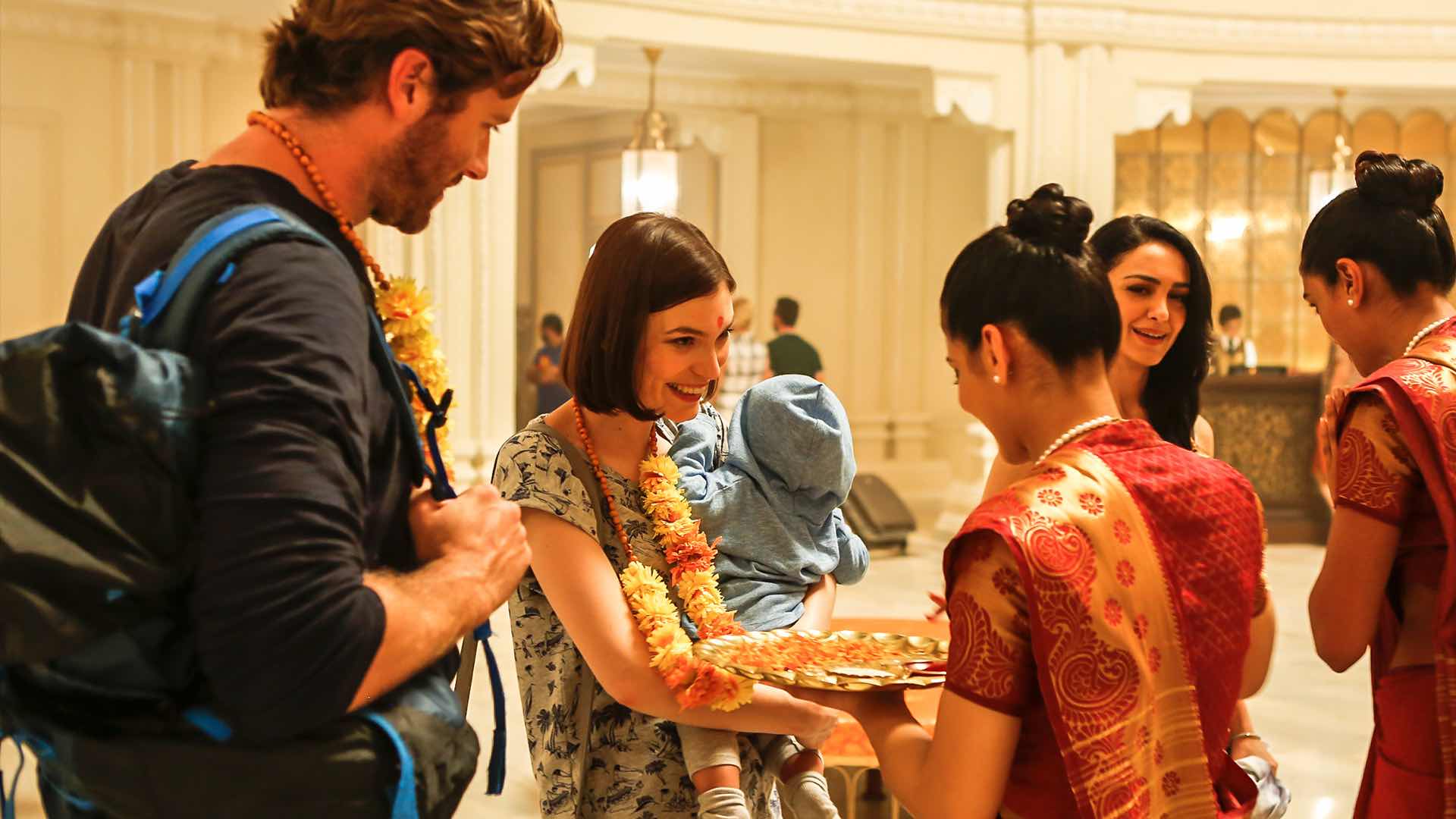
Adapting tragic events of the world to the cinema screen can be a very risky proposition. There are many ways to get it wrong and very few ways to get it right. The wrong ways can lead the film to be considered exploitative, cheap, insulting, xenophobic and even laughable. It would also depend on the timing of when the film is made.
If the film was made soon after the tragic event, then there would be more pressure on the filmmakers in terms of accuracy and fidelity. If the film was made long after the tragic event, there would be more leeway for the filmmakers to be more abstract and expressionistic in their direction. In the case of Anthony Mara‘s Hotel Mumbai, the filmmaking approach would have be the former, since the events are still fresh in peoples’ minds. Does Hotel Mumbai portray the events with respect, accuracy as well as provide an entertaining film in its own right? Does the film achieve the perfect balance?
Set in 2008, terror strikes in the heart of Mumbai, India, as members of Lashkar-e-Taiba storm the Taj Mahal Palace Hotel in a series of coordinated attacks throughout the city. Amid the gunfire and mayhem, a brave chef Hemant (Anupam Kher) and kitchen worker Arjun (Dev Patel) decide to risk their own lives to try and protect the frightened guests. As the militants continue their assault on the hotel, a desperate couple Zahra and David (Nazanin Boniadi and Armie Hammer) must do whatever they can to protect their newborn baby.
Does the film manage to portray the events honourably and respectfully whilst being an entertaining genre film? For the most part, Hotel Mumbai succeeds. On the positive side, writer/director Anthony Maras and co-writer John Collee manage to highlight the human element of the film by developing the various characters efficiently and clearly.
Despite the various subplots, Maras manages to keep a tight leash on the all the film’s narrative strands as we watch characters connect in and out of each other’s stories. It also helps that the use of real news footage on background televisions is a clever way of dealing with exposition, allowing the plot to move briskly along with little narrative fat.
As it is with Hollywood disaster movies, we see viewpoints of Americans overcoming tragic circumstances in a foreign country. But in a refreshing move, the impact of the terrorist attack on locals and visitors is fittingly shown in equal measure; showing the vast effect of the events that it has on many lives.
And it is because of that human element, that Maras is able to be as uncompromising and unflinching as possible in portraying the atrocities of the events. Thanks to the focused editing by Maras and co-editor Peter McNulty, composer Hauschka and especially the sound department, the tension and suspense is incredibly palpable and will have people on the edge of their seat, sweating. Every gunshot, every explosion, every ounce of emotion and every action (or inaction) feels honest and genuine that it becomes believably unnerving and yet extremely immersive.
It helps that the actors bring their A-game and instill life to their characters with conviction and heart. Standouts include Dev Patel, who conveys so much by emoting so little; Anupam Kher, who brings a paternal and authoritative presence; Armie Hammer; who brings a likable average-joe quality to the part; Nazanin Boniadi, who is believable as the increasingly stressful mother; and Jason Isaacs, who manages to bring an amount of believable humanity to his scumbag of a character.
With all those positives in tow, there are some negatives that prevent it from reaching greatness. Again with disaster/survival movies, there are moments where characters become antagonistic towards others and while some of the times, it can become quite laughable or ineffective. In the case of Hotel Mumbai, the thematic power from the relationship between the locals and the guests is inert and underdeveloped, making scenes like the conflict with a racist guest and Patel’s character feel unearned and relatively phony. The film does manage to do better at conveying the split between social classes in the hotel though, particularly when they are holed up together in the same place and led by Kher’s character.
Other flaws include moments where Maras attempts to convey the humanity of the terrorists, with mixed results. While they are never portrayed as cartoons or histrionic figures, they are given moments that are a bit incongruous to the overall tone of the film. Like in one scene, one of the men takes a bite of a pizza until he’s told by his brother-in-arms that it’s pork. Spluttering wildly, he’s laughed at, and it told that “they’re just vegetables”. It is those tonal issues and flaws that take the audience out of the realism of the film.
Overall, Hotel Mumbai is a white-knuckle thriller that manages to keep the audience on the edge of their seats and also manages to provide a humane and realistic portrayal of the tragic events of the 2008 Mumbai attacks.
![]()
![]()
![]()
![]()
![]()
FOUR STARS (OUT OF FIVE)
Hotel Mumbai is in cinemas now.
